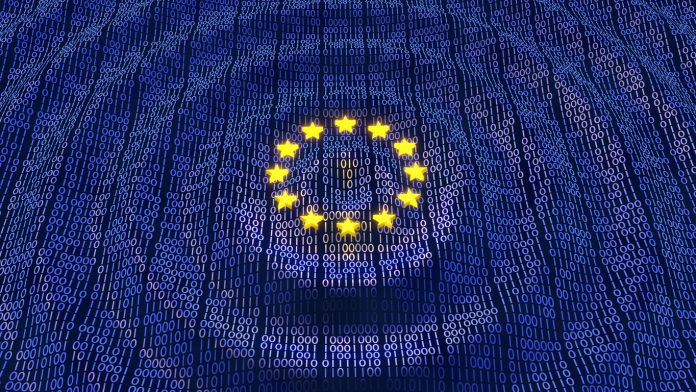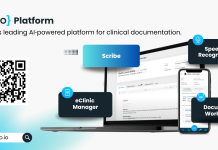Open Access Government charts the priorities of the European Commission’s Directorate‑General for Communications Networks, Content and Technology about carrying out and developing the policies that enable a thriving European digital age
The Directorate‑General for Communications Networks, Content and Technology (Connect) carries out and develops the Commission’s policies “to make Europe fit for the digital age”. Connect invests in research and innovation, as well as the deployment and adoption of reliable and green digital technologies that enhance Europe’s economy and the lives of its people.
How can we create a thriving European digital age?
Connect provides funding, legislative, and policy support for European independence and leadership in key digital technologies such as artificial intelligence (AI), Common Data Spaces, 5G, high-performance computing, micro-electronics, quantum, and blockchain. It also aims to position Europe as a global data economy and cybersecurity hub.
Fostering an internal market in which all businesses can invest, compete, and innovate on a level playing field, develop, market, and use digital technologies, products, and services, and where creators’ and consumers’ rights are protected is also very much a part of the Connect mission.
Connect also works to roll out very high-speed networks to all businesses and homes, as connectivity is essential for digital transformation. Promoting the human-centred model of an “innovative, fair and sustainable digital transformation of society” that upholds democratic principles, fundamental rights, and culture while bridging the digital divide through promoting digital literacy and skills among European Union (EU) citizens runs through the veins of Connect.
Connect’s leadership and organisation include the European Commissioner For Internal Market, European Commission, Thierry Breton and Director-General, Roberto Viola. (1) Among his many duties, Commissioner Breton is in charge of the Digital Services Act, which aims to strengthen the single market in digital services, set out the responsibilities of online platforms and provide legal clarity and fairness for smaller businesses.
Another is enhancing Europe’s cyber resilience through certification, network and information security, rapid emergency response, and a joint Cyber Unit. (2) Let’s now examine some of the areas mentioned above in more detail.
The Digital Services Act
It is important to note that the EU’s landmark Digital Services Act (DSA), which aims to improve the safety, fairness, and transparency of the online environment, will apply to all EU online intermediaries starting on 17th February 2024. Under the DSA, EU users are better safeguarded from illegal products and content and have their rights respected online when interacting with others, sharing information, or purchasing goods.
“We are fully mobilised to ensure full implementation of the DSA and we encourage all Member States to make the most out of our new rulebook. Effective enforcement is key to protect our citizens from illegal content and to uphold their rights,” Commissioner Breton commented.
All online platforms with EU-based users, except for small and micro enterprises with fewer than 50 employees and an annual turnover of less than €10 million, are required to take measures to combat illegal content, goods and services, protect minors, empower users with information about the ads they see, ban ads that target users with sensitive data, and much more. (3)
Cyber Solidarity Act
The Commission welcomed in early March 2024 the political agreement reached by the European Parliament and Council on the Cyber Solidarity Act, which the Commission had proposed in April 2023. The Act will enhance EU solidarity to identify better, prepare for, and respond to cyber threats and incidents. We understand that this announcement comes at a critical juncture for EU cybersecurity as the geopolitical landscape continues to shape the cyber threat environment in the EU.
First, the Act establishes a European Cybersecurity Alert System comprising National and Cross-border Cyber Hubs that use cutting-edge tools and infrastructure (including AI and advanced data analytics) to rapidly identify cyber risks and incidents.
Second, the Act establishes a Cybersecurity Emergency Mechanism to improve preparedness and response capabilities in the event of large-scale and significant cyber incidents.
Third, the proposal sets up a European Cybersecurity Incident Review Mechanism to review and evaluate major or large-scale incidents after they have occurred to make recommendations to enhance the EU’s standing concerning cybersecurity capabilities.
We could tell you much more about this, but Commissioner Breton’s comments help us focus on the Act as a critical step towards building a European cyber shield. “Europe will now rely on a European Cybersecurity Alert System to detect cyber threats more quickly, and on a European cyber solidarity mechanism to support any Member States attacked, including through a European cyber reserve”.
Commissioner Breton added that the Cyber Solidarity Act strengthens the cyber operational cooperation at the European level, for the security of EU citizens. “It represents the next step in building a collective resilience to the growing cyberthreats in the current geopolitical landscape,” Margrethe Vestager, Executive Vice-President for a Europe Fit for the Digital Age commented. (4)
Future of the European digital age
We could say so much more if we had additional time. For example, the Commission launched several initiatives in January 2024 to help European start-ups and SMEs develop trustworthy AI that respects EU rules and values. (5) The EU-Canada Digital Partnership is an exciting initiative to strengthen collaboration on AI, among many other areas. (6)
The Gigabit Infrastructure Act introduces a suite of measures to simplify and accelerate the roll-out of ultra-high-capacity networks, including fibre and 5G networks, by reducing deployment costs and administration burden. (7)
We hope for the best as the Commission promotes innovation and technology leadership in areas like AI, cloud, data, quantum computing, the Metaverse, and investing in cutting-edge digital networks. (8) May all the Connect policies help “make Europe fit for the digital age”. (1)
References
- https://commission.europa.eu/about-european-commission/departments-and-executive-agencies/communications-networks-content-and-technology_en
- https://commissioners.ec.europa.eu/thierry-breton_en
- https://ec.europa.eu/commission/presscorner/detail/en/ip_24_881
- https://ec.europa.eu/commission/presscorner/detail/en/ip_24_1332
- https://ec.europa.eu/commission/presscorner/detail/en/ip_24_383
- https://ec.europa.eu/commission/presscorner/detail/en/ip_24_614
- https://ec.europa.eu/commission/presscorner/detail/en/ip_24_669
- https://ec.europa.eu/commission/presscorner/detail/en/speech_24_1101











